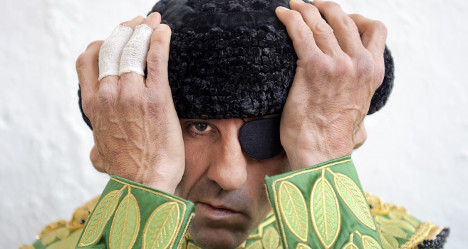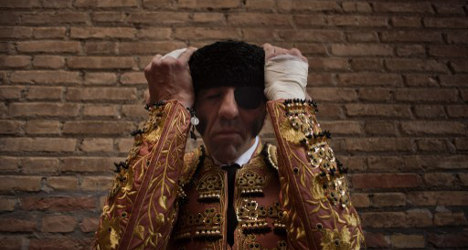The photo, Bullfighter's Comeback by Spain's Daniel Ochoa de Olza, portrays Spanish bullfighter Juan José Padilla with a patch over one eye.
Padilla, also known as the 'Cyclone of Jerez' lost sight in that eye and suffered paralysis to part of his face after a goring by a bull in 2011.
The 38-year-old needed major reconstructive surgery and a titanium plate implant.
Madrid-based de Olza's portrait shows Padilla on the day of his return to the ring five months later.
After the comeback fight, he was lifted and carried from the ring by one of his fellow bullfighters — an honour reserved for only the best performers.

A section of de Olza's prize-winning portrait of Spanish bullfighter Juan José Padilla. Photo courtesy of World Press Photo.
de Olza, originally from Pamplona, won second prize in the Observed Portraits section of the World Press Photo competition for the image.
There is no blood, and no animals are visible, but Barcelona's town hall doesn't want the portrait on the promotional banners that hang from the city's lamp posts.
"We give up this space for free so that events can be promoted which match with the values of our 'Barcelona Inspires' campaign,'" a spokesperson for the city's town hall told Spanish news agency Efe.
The town hall has voiced instead its preference to a black and white portrait of an unemployed person by Dutch photographer Ananda van der Pluijm.
"This is not a veto," the Barcelona town hall spokesperson stressed.
"We wanted to see more options and choose the one that suited us the most and matched the values of Barcelona Inspires.
"This one (by the Dutch photographer) seemed better and that's why we will use it."



 Please whitelist us to continue reading.
Please whitelist us to continue reading.
Member comments